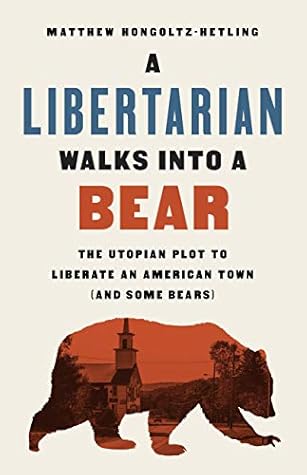More on this book
Community
Kindle Notes & Highlights
Read between
March 6 - April 7, 2022
Since he first conceived of his planned community, he’s been called an atheist, a survivalist, a communist, an anarchist, and an anarcho-communist. His overarching political belief is that capitalism is bullshit. “Government isn’t ruining capitalism. Capitalism is ruining government. I think that’s kind of obvious,” he says. “If you take capitalism out of government you get simple public representation. If you take government out of capitalism, you get slavery.”
Years later Babiarz acknowledged the disconnect while explaining that libertarians, though logic-heavy, tended to have poor communication skills. “The libertarian movement is more cerebral, if you will,” he said. “They lack the ability to deal with people at the human level.”
Their findings suggest that Canaan’s success is no fluke, but in fact an entirely predictable outcome: states with well-funded public services have happier residents than those that don’t. This happiness gap held up among all sectors of society—rich and poor, well-educated and poorly educated, married and single, old and young, healthy and sick.
(Libertarians reserve a special disdain for pieces of paper that hold power over their actions.)
Libertarians believe that a landowner like Doughnut Lady owns any natural resources on that property—oil deposits, trees, and even wandering wildlife, like bears or endangered species. In Grafton, I was told, four or five families were intentionally feeding the bears, and the libertarian community saw this as their absolute right.
Civilization is a mighty force; it turned fierce paleolithic hunter-gatherers into a flabby technocracy in which the most-retweeted English-language Twitter post is an appeal for chicken nuggets that reads: “HELP ME PLEASE. A MAN NEEDS HIS NUGGS.”
As Adam ticks down the list—cayenne pepper, electrified fencing, motion sensors, booby traps, and radios that constantly blasted out disembodied voices—I wonder what subtle forces work behind human perceptions to make an entire encampment of people develop such a high tolerance for bears and for bear protection devices.
Telling people to change their behavior is far cheaper than investing in an effective trapping and relocation process (for the bears, not the owners).
While reading the research, I wondered whether Grafton’s libertarian colonizers would find the parasite’s actions to be an infringement on their freedoms or something more like consensual cannibalism, the unfortunate result of an active decision to expose oneself to cat poop.
I wondered what would happen if the bears instead threatened privileged, politically connected people. It didn’t take long to find out.
“I’m back bitches,” said Mink (according to a Twitter account in her name). “Where the donuts at?”


